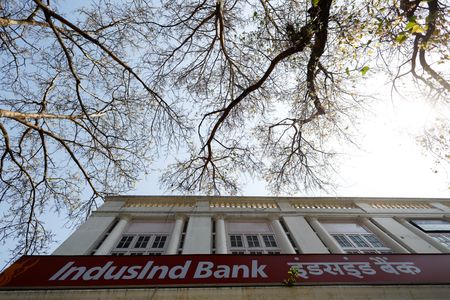MUMBAI (Reuters) – India’s market regulator late on Wednesday issued tighter regulations for merchant bankers and initial public offerings (IPOs) by small businesses, mandating that entities listing should have been profitable in recent years.
The Securities and Exchange Board of India’s (SEBI) tighter rules followed a boom in IPOs by small- and medium-sized firms, which are defined in the country as companies with an annual turnover of 50 million ($589,157.15) to 2.5 billion Indian rupees ($29.46 million).
More than 159 small and medium enterprises (SMEs) have raised 57 billion rupees ($675.46 million) through such issues in the financial year till Oct. 15, compared with the previous year’s record of 60 billion rupees, data from SEBI showed.
A small business can only launch an IPO if it has made a profit of 10 million rupees from operations in two of the three financial years, SEBI said.
It added that the offer for sale or the portion of shares being sold by existing shareholders cannot exceed 20% of the total issue size.
SEBI also said funds from these IPOs cannot be used to repay loans from large shareholders or other related parties.
The market regulator, however, stayed away from mandating a minimum size for the issue or the least required subscription for small business IPOs.
SEBI, in a consultation paper in November, had proposed to raise the minimum application size for the IPOs of SMEs to 200,000 rupees from 100,000 rupees.
It had also proposed that an SME company should be eligible for an IPO only if the issue size is more than 100 million rupees.
TIGHTER MERCHANT BANKING RULES
The regulator also overhauled rules for merchant bankers, asking them to separate businesses not directly linked to merchant banking activities into distinct entities under different brand names.
A merchant banking licence in India permits managing and advising on public issues, underwriting as part of the issues as well as managing and advising on international offerings of debt and equity, among others.
“Activities other than permitted activities by merchant banks shall be hived off to a separate legal entity with a separate brand name, within a period of two years,” SEBI said.
This could include activities such as valuation, project advisory, stock broking or portfolio management that do not fall under the purview of merchant banking, according to SEBI rules.
While merchant banks will no longer be allowed to take on fresh valuation activities, existing valuation assignments may be completed, the regulator said.
Merchant banks will also need to maintain a liquid net worth of at least 25% of the minimum net worth requirement at all times, SEBI said.
The regulator added that the underwriting limit for merchant banks has been prescribed as 20 times the liquid net worth.
Liquid net worth is the amount of money an entity is holding in the form of cash or cash equivalent instruments that can be easily liquidated.
($1 = 84.8670 Indian rupees)
(This story has been refiled to change the dateline to Dec. 18 from Dec. 16)
(Reporting by Ira Dugal in Mumbai and Nishit Navin in Bengaluru; Editing by Shreya Biswas)










